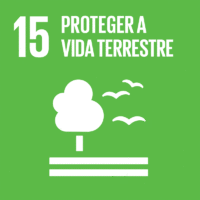Ciência_Iscte
Publicações
Descrição Detalhada da Publicação
Título Revista
Public Understanding of Science
Ano (publicação definitiva)
2016
Língua
Inglês
País
Reino Unido
Mais Informação
Web of Science®
Scopus
Google Scholar
Esta publicação não está indexada no Overton
Abstract/Resumo
This article examines how residents in Natura 2000 sites in Southern Portugal ‘imagine themselves’ as publics participating in biodiversity conservation. Through nine focus groups (n = 49) it seeks to understand whether and how these self-imaginations reproduce and/or resist experts’ highly shared, hegemonic, representations across two dimensions: the epistemic and the normative. Analysis of the groups’ discussions shows that (1) reproduction is clearer in the normative dimension, conveyed through discursive formats that place ‘people’ as its actor and exempt the Ego from it; (2) resistance is clearer in the epistemic dimension, relying on vibrant claims of local knowledge, yet it can be maintained as hidden discourse; (3) the forms of reproduction or resistance that emerged were hybrid ones; and (4) self-imaginations are more fragmented and negative in normative matters and more unified and positive in epistemic matters. We discuss how these findings help understand how hegemonic representations are maintained/resisted in enduring public–expert relations.
Agradecimentos/Acknowledgements
--
Palavras-chave
Hegemony,Interaction experts/publics,Lay expertise,Public participation,Resistance,Social representations
Classificação Fields of Science and Technology
- Ciências da Comunicação - Ciências Sociais
Registos de financiamentos
| Referência de financiamento | Entidade Financiadora |
|---|---|
| LIFE07NAT/P/654 | Comissão Europeia |
| UID/PSI/03125/2013 | Fundação para a Ciência e a Tecnologia |
Contribuições para os Objetivos do Desenvolvimento Sustentável das Nações Unidas
Com o objetivo de aumentar a investigação direcionada para o cumprimento dos Objetivos do Desenvolvimento Sustentável para 2030 das Nações Unidas, é disponibilizada no Ciência_Iscte a possibilidade de associação, quando aplicável, dos artigos científicos aos Objetivos do Desenvolvimento Sustentável. Estes são os Objetivos do Desenvolvimento Sustentável identificados pelo(s) autor(es) para esta publicação. Para uma informação detalhada dos Objetivos do Desenvolvimento Sustentável, clique aqui.

 English
English


